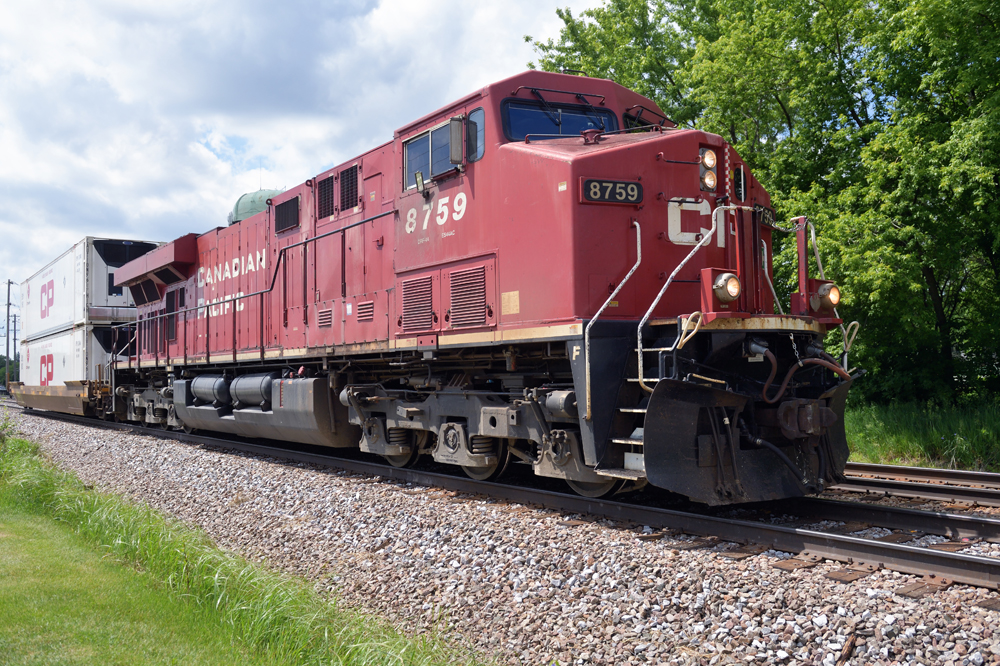
CALGARY, Alberta — The cross-border interline intermodal perishables service that Canadian Pacific and Kansas City Southern tested before their merger must have worked: CPKC announced today that it has more than doubled its refrigerated container fleet with the purchase of 1,000 new reefers.
The 53-foot containers will be used on the railway’s new Mexico Midwest Express service, which launched this month linking Chicago with Kansas City, Mo.; Laredo, Texas; and points in Mexico. Until MMX debuted, all cross-border perishables moves were handled by trucks, CPKC says.
“Since being launched on May 11, MMX has provided truck competitive service, delivering exactly what we promised and executing what many said could not be done,” Jonathan Wahba, CPKC senior vice president of sales and marketing for bulk and intermodal, said in a statement. “We’re providing customers with the fastest transit times in the rail industry and this expansion of our state-of-the-art reefer equipment gives more customers the solution they need to convert to rail.”
The new refrigerated containers are part of CPKC’s TempPro program. The MMX temperature controlled service will move fresh and frozen produce, baked goods, candy and other food products northbound, and handle beef, chicken, and pork southbound.
The MMX Series debuted May 11 with trains now linking Chicago, Kansas City, Texas markets, Monterrey and San Luis Potosi. MMX trains offer third-day service to/from Laredo, fourth-day service to/from Monterrey, and 4.5-day service to/from San Luis Potosi. MMX provides transit time of 98 hours from Chicago to San Luis Potosi, which CPKC says is a day faster than the nearest competitor.
In March, CPKC CEO Keith Creel said the railways were encouraged by the success of the interline premium service test trains they had run with refrigerated and frozen goods between Mexico and Chicago.
Hundreds of trucks cross the border at Laredo, Texas, every day carrying refrigerated and frozen cargo. Trucks can spend two to three days at the border while their cargo is unloaded, inspected, and reloaded, Creel said at the time.
CPKC aims to create a smoother and faster border crossing for its premium trains. “We’re on the verge of creating inland terminals with support of the Mexican regulator … to allow those products, in this case beef or poultry, to be inspected inland and not stop at the border,” Creel said. “It’s transformational.”






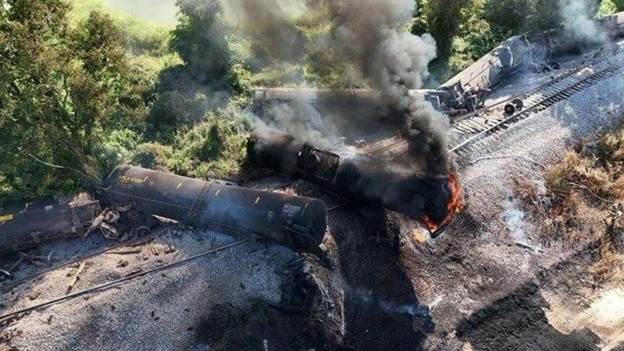
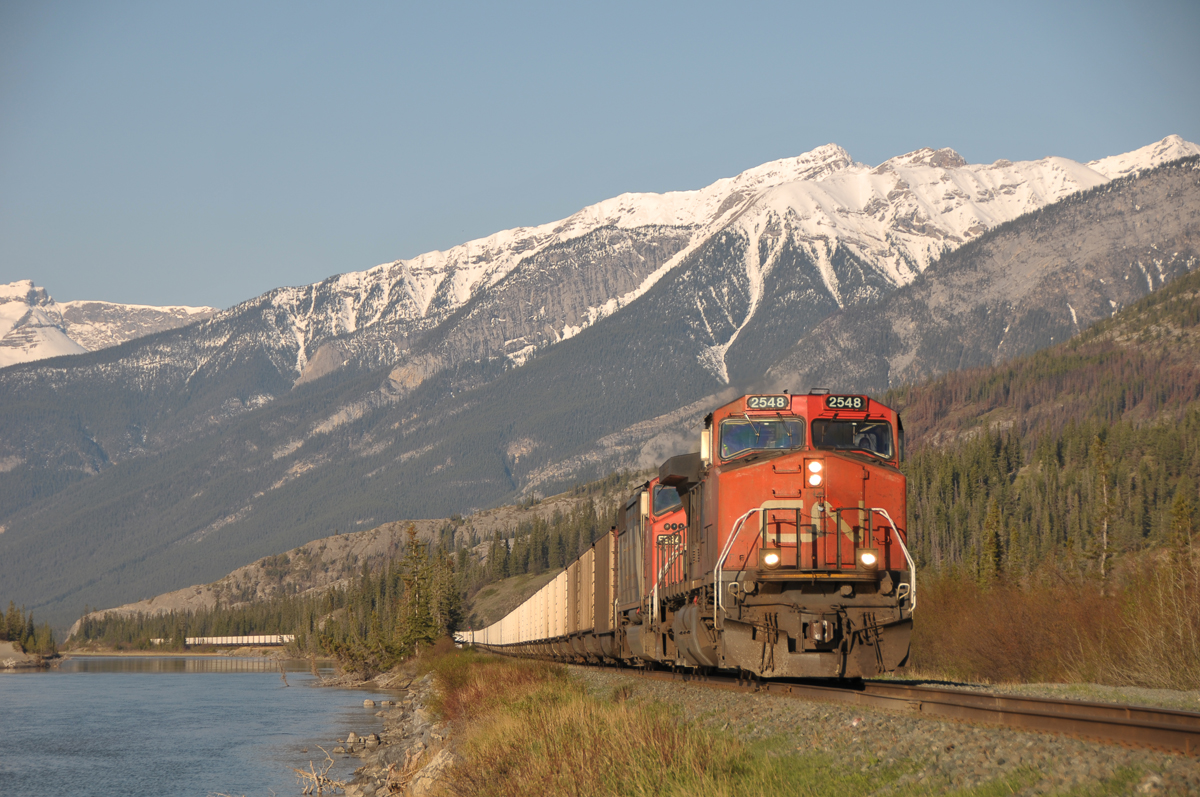
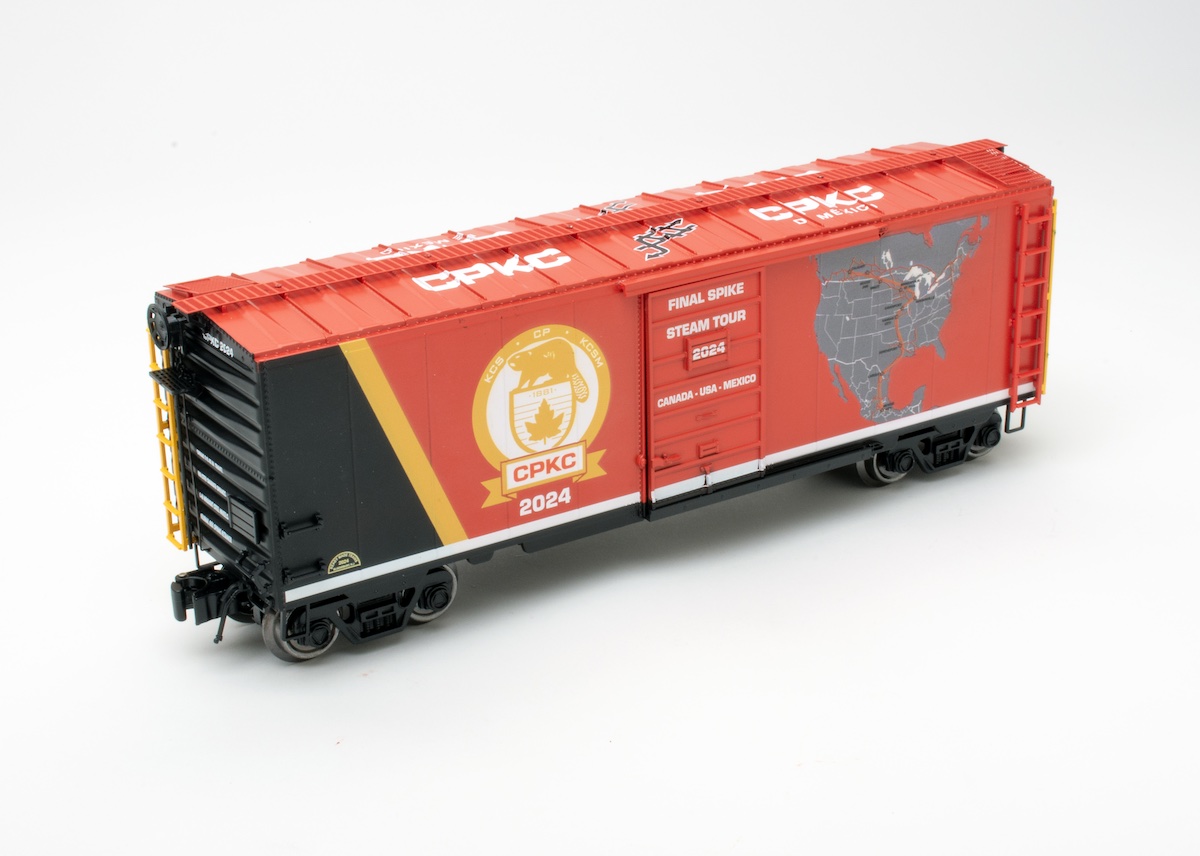
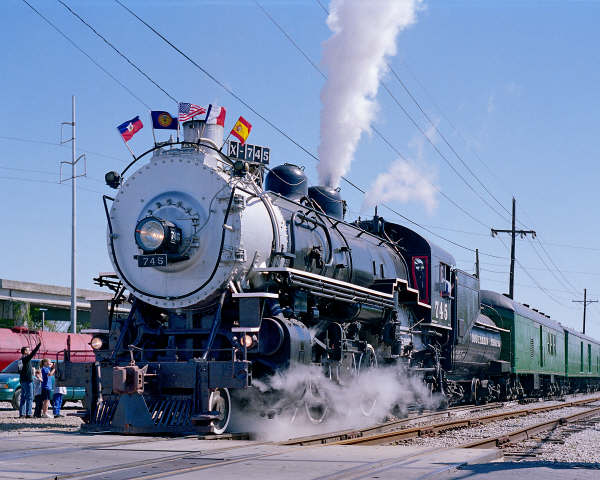




This a sufficient number of boxes to provide meaningful service. Over and above frozen foods.
The market they may go after is bananas.
In typical TRAINS fashion, this isn’t a news article. This is an article about a CPKC press release. Look how many times in this article alone “CPKC” or Keith Creel is quoted. There is no independent verification that this plan will work in the long run or be profitable. Remember: Every shipment out of Laredo routed via CPKC instead of UP is bad for the economy and the environment because the routing is longer, steeper and slower than it needs to be and requires more resources, such as personnel, fuel, and equipment.
As for taking business from trucks: “Trucks can spend two to three days at the border while their cargo is unloaded, inspected, and reloaded, Creel said at the time.” Yeah, they can, but do they? Laredo-to-Chicago Freight Brokers advertises on their website that driving time from Laredo to Chicago is less than 21 hours on a route over 300 miles shorter than CPKC. How about some reporting from TRAINS?
CPKC: Constant Propaganda, Keith Creel.
We’ll see how things look a couple of years into the merger.
Pardon me for my hundredth post on the same subject ….. but I’ve never gotten an answer no matter how many times I write the same post …. is it even possible to find a more absurd route from West Detroit (therefore most of Canada’s population and industry) to Kansas City?
Combine Mark Meyer’s post above to this post from me, that’s two key routes of the newly merged railroad that are the long way around.
Sometimes when I book a flight, the quickest route is not always the shortest. CPKC does have the longest route, but would you accept the service if it always came a day sooner at the same price? Would you care how CPKC routed it as long as it met your financial and time goals?
Sometimes I see FedEx or UPS route my shipments through unusual hubs, but as long as they meet their stated delivery time, do I care?
Mark Meyer: Does the Laredo-Chicago quote include the pre-border crossing time?
@John Rice 21H for a team. 34H solo. Even then adding the 24-48H delay for perishables inspection and crossdocking. This time is dependent on shelf life of the perishable. Still beats CPKC.. The issue is most of these reefers won’t even serve markets beyond Iowa.. This MMX service is a weak offering and provides hardly market reach to the Great Lakes Region..
Then again this MMX serivce which is being touted as game changer has been moving mostly carload….
Braden, thanks for the stats.
But just how many teams of drivers are needed to pull one consist of MMX for CPKC by truck? Can you find 200 drivers to replace 1 CPKC 50 car load?
Also people need to consider that UP or BNSF may have excessive intermediate yard dwells for this service from Mexico elsewhere in the system that would eat into the mileage benefit they have. I mean right now UP cant even get corn feed to the chickens at Foster Farms short of a STB order. Can they muster an express reefer service like this not called “fruit growers express”?
Fine. But if there wasn’t a market for these services, then why did UP, CN, etc just launch trains for these markets too? Length of haul is irrelevant. Shippers want consistency. If that is something CPKC can provide, it won’t matter how many mountains they have to climb over.
John: “Does the Laredo-Chicago quote include the pre-border crossing time?”
No, but neither does CPKC’s claim of “MMX trains offer third-day service to/from Laredo.”
John: “Sometimes when I book a flight, the quickest route is not always the shortest.”
Agreed. But 500 MPH planes and 25 MPH trains are apples and oranges. And CPKC can’t do a “hub and spoke” like the airlines or even UP. CPKC has no hub. They just have a long, single route.
John: ” CPKC does have the longest route, but would you accept the service if it always came a day sooner at the same price?”
Yes, but we don’t know if that’s going to happen. Again – to my point – this is only what CPKC says. Let’s see how it goes in reality.
John: “Would you care how CPKC routed it as long as it met your financial and time goals?” I would accept any such route. The question is whether CPKC can actually do this and whether they’re sustainable. Sure, CPKC is undercutting the competition (most likely) now to be “Everything Everywhere All At Once” but they can’t forever with this $31 billion albatross looming. It’s just simply a fact that providing the “same” service as the other railroads will cost CPKC more. And I think we’ll find there are a lot of businesses who won’t accept CPKC’s service. Arriving on time is one thing, but when the equipment cycle time is twice that of the competition (very likely to whatever railroad CPKC would interchange to in Chicago versus UP and BNSF interchanges), many will think twice. The cost of equipment is a big deal, and needing as much as twice as much of it will render the service as prohibitive.
John: “Sometimes I see FedEx or UPS route my shipments through unusual hubs, but as long as they meet their stated delivery time, do I care?” No, as long as they meet their goal. This remains to be seen with CPKC. And again, unlike FedEx and UPS, CPKC doesn’t have hubs, they just ONE ROUTE, unlike the competition. Unlike UPS, CPKC, BNSF or UP, CPKC’s flexibility on routings is zero, and they’re not at the mercy of the competition to achieve their service promises.
We all know that if you could go back in time 30 years before mergers and select the best routes between the Mexican border and Upper Midwest, anything operated by CP or KCS wouldn’t even be a consideration. Now listening to these press releases parroted in TRAINS, the CPKC route is this unsung superrailroad that everyone somehow overlooked in the past. The only thing missing from CPKC is Ethel Merman (rest her soul) belting out “Everything’s Coming Up Roses.”
Rob: ” But if there wasn’t a market for these services, then why did UP, CN, etc just launch trains for these markets too? Length of haul is irrelevant. Shippers want consistency. If that is something CPKC can provide, it won’t matter how many mountains they have to climb over.”
Agreed. But only if the shippers are willing to pay the full cost in perpetuity. One thing that is indisputable is that for every car or container moved from (examples) Laredo to Indianapolis, Grand Rapids, Columbus, Cleveland, Pittsburgh, etc., it will cost considerably more to route via CPKC than UP. In theory, a shipper might consider this as simply a cost of doing business. But at CPKC, they still have to generate sufficient revenue to overcome the $31 billion cost of the merger and pay to upgrade infrastructure to accommodate the extra traffic they claim will materialize (except in the Houston terminal….not their railroad, so no problems there).
UP and CN launched competitive service simply to show they can. And they have the much deeper pockets to take a hit if it doesn’t work out. And north of the border, their trains are going to be much less expensive to operate than CPKC, the poster child for circuity.
Mark: I’m not disputing the higher cost of CPKCs route. CN has pretty good service when a train is on their own network. At interchange, though, not so much. As for UP, I don’t think I need to go into their problems. The point here is that a shorter route doesn’t mean a faster or cheaper one. CPKC is relying on economies of scale for pricing. More boxes means more money. UP and CN know a lot of those boxes are going to come off their networks, and that’s why they’ve decided to offer the service all of a sudden. And it’s also why they fought so hard against the merger.
Good discussion, thanks to all for your feedback.
@Rob Sutherland,
Soa few things… UP had already been operating a joint service with FXE called Eagle Premium. CN was added to the service due to the fact it lost its IM connection with the KCS at Jackson, MS. The other reason CN became the exclusive Canadian road the EMP Pool.. This service was already planned at the time of that annoucement..
Length of haul is not irrelevant with intermodal.. The more miles mean higher cost due to slower transit time and poor equimpent cycle times.. Adding in excessive drayage cost as well can hurt rates making the service product a cash negative…
Great to see a railroad working to grow the business.
OK Mr Fritz. Mr Creel has laid it on the line.
You say you can compete “anytime, anywhere”…. lets see it.
Undoubtedly, UP is quaking in their boots. Until someone reminded them that the congested Houston terminal and Louisiana isn’t on anyone’s list of logical rail routes between Mexico and the Upper Midwest, and that in Iowa, CPKC is the Milwaukee Road in disguise.
Very cool…